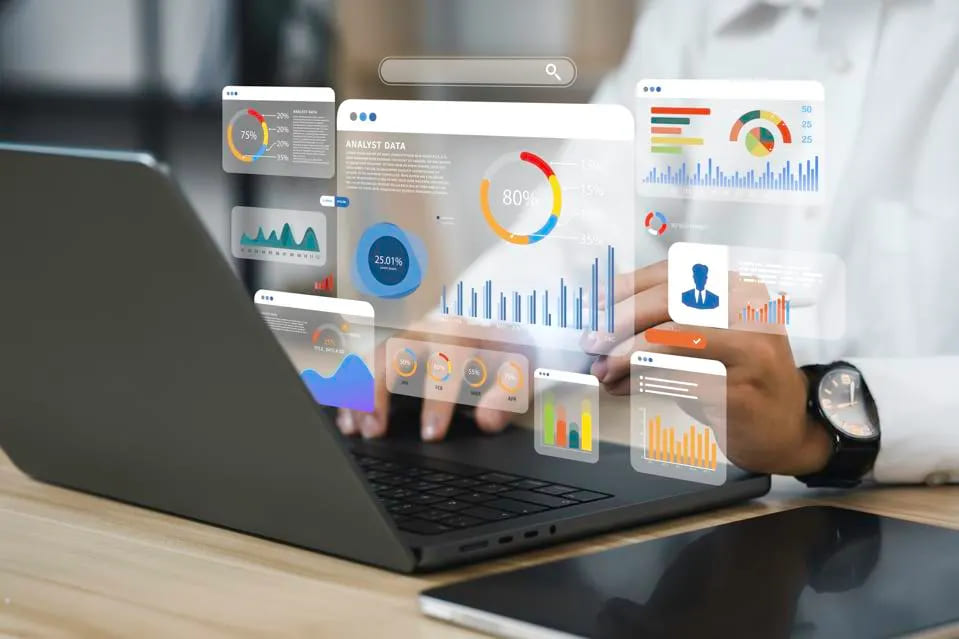- Tech
- Updated on November 12, 2025
SME Growth in India: Digital Tools Helping Small Businesses Scale

Small and Medium Enterprises (SMEs) are the backbone of India’s economy. They contribute significantly to employment, GDP, and innovation. However, in today’s rapidly changing digital era, traditional ways of running a business are no longer enough to stay competitive. Fortunately, digital tools have opened up new opportunities for SMEs to scale efficiently, enhance productivity, and reach new markets.
In this post, we’ll explore how digital transformation is fueling SME growth in India and the essential tools that can help small businesses thrive in the digital age.
The Changing Landscape of Indian SMEs
Over the past decade, India’s SME sector has witnessed a major transformation. Government initiatives like Digital India, Make in India, and Startup India have encouraged businesses to adopt digital solutions. According to recent industry reports, SMEs contribute nearly 30% of India’s GDP and employ over 110 million people—a number that continues to grow with the integration of technology.
Digital adoption isn’t just about having a website or social media presence. It’s about using the right tools to streamline operations, enhance communication, and make data-driven decisions. Whether it’s automating accounting, managing customer relationships, or using digital marketing to attract clients, technology is now central to SME success.
Why Digital Transformation Matters for Small Businesses
For small businesses in India, going digital is no longer optional—it’s a necessity. Here’s why:
- Enhanced Productivity: Cloud-based tools help teams work faster and more efficiently, even remotely.
- Better Customer Engagement: Digital platforms allow direct communication with customers through email, chat, or social media.
- Wider Reach: Online marketplaces and advertising open access to national and global audiences.
- Data Insights: Businesses can use analytics to track performance and improve decision-making.
- Cost Savings: Digital automation reduces manual errors and operational costs over time.
Key Digital Tools Empowering Indian SMEs

1. Accounting and Finance Tools
Managing cash flow is one of the biggest challenges for SMEs. Tools like TallyPrime, QuickBooks, and Zoho Books simplify accounting by automating invoicing, tax filing, and expense tracking.
Cloud-based finance platforms also make it easier for businesses to access real-time financial data, improving transparency and accuracy.
2. Customer Relationship Management (CRM) Software
Maintaining strong relationships with customers is essential for business growth. CRM tools like HubSpot, Salesforce, and Zoho CRM help SMEs track leads, manage interactions, and provide better customer service.
With data-driven insights, businesses can predict customer needs and personalize their marketing campaigns—leading to improved loyalty and sales.
3. Digital Marketing Platforms
Today’s customers are online, and so should your business be. Digital marketing tools like Google Ads, Facebook Business Manager, and Canva allow small businesses to promote their products cost-effectively.
Using SEO tools such as Ahrefs, SEMrush, and Google Analytics, SMEs can also monitor their performance, refine content strategies, and boost visibility.
Social media platforms like Instagram, LinkedIn, and X (formerly Twitter) have become vital spaces for brand storytelling and engagement, allowing SMEs to build strong communities around their products.
4. E-Commerce and Online Marketplaces
The rise of platforms like Amazon India, Flipkart, and IndiaMART has revolutionized the retail sector. Small businesses can now sell directly to customers across the country without investing heavily in physical stores.
Tools like Shopify and WooCommerce make it easy for SMEs to set up customized online stores, integrate payment gateways, and manage inventory seamlessly.
5. Communication and Collaboration Tools
In a hybrid work environment, effective communication tools are vital. Platforms such as Slack, Microsoft Teams, and Google Workspace allow teams to collaborate in real-time.
They also help maintain business continuity by ensuring that all team members stay connected, whether they’re in the office or working remotely.
6. Project Management Software
SMEs often struggle with managing multiple tasks and deadlines. Tools like Trello, Asana, and ClickUp make project tracking simpler.
These platforms help assign responsibilities, set priorities, and monitor progress—all in one dashboard. This level of organization ensures projects are delivered on time, boosting client satisfaction and business reputation.
7. Cloud Storage and Security Solutions
As businesses go digital, data protection becomes a top priority. Google Drive, Dropbox, and Microsoft OneDrive offer secure cloud storage for easy access to files anywhere, anytime.
For cybersecurity, tools like Norton, Bitdefender, and Cloudflare provide essential protection against malware, phishing, and data breaches—helping SMEs safeguard sensitive information.
Government Support for SME Digitization
The Indian government has taken multiple initiatives to promote the digital growth of SMEs:
- MSME Digitalization Schemes: These programs encourage the use of cloud computing, e-commerce, and online payment solutions.
- Udyam Registration: Simplifies business registration and offers easier access to financial assistance.
- Digital MSME Scheme: Provides training and financial aid for adopting digital tools.
- Credit Guarantee Fund Trust for Micro and Small Enterprises (CGTMSE): Offers collateral-free loans to small businesses investing in technology.
Such support helps bridge the gap between traditional operations and modern digital ecosystems, enabling even small enterprises to compete with larger players.
Overcoming Common Challenges in Going Digital
While the benefits are clear, SMEs often face hurdles when transitioning to digital platforms:
- Limited Budget: Not all businesses can afford premium tools, but many affordable and free versions exist.
- Lack of Technical Expertise: Training staff and hiring digital consultants can ease the process.
- Resistance to Change: Business owners must understand that digital adoption is an investment, not an expense.
- Cybersecurity Concerns: Regular updates, backups, and strong passwords can mitigate most risks.
By addressing these challenges strategically, small businesses can ensure a smooth digital transformation journey.
The Future of SMEs in India’s Digital Economy
As India continues its path toward becoming a $5 trillion economy, SMEs will play a critical role. The integration of AI, automation, and digital payments is expected to redefine the business landscape.
Emerging technologies like blockchain, virtual reality, and the Internet of Things (IoT) are also poised to make small businesses more efficient and competitive. Those that adapt early will have the upper hand in innovation and scalability.
Read Also : How Smart Home Technology is Changing Our Daily Lives
Conclusion
The digital revolution is no longer limited to big corporations—it’s empowering small businesses across India to dream bigger and achieve more. By leveraging digital tools, SMEs can enhance productivity, improve customer engagement, and scale faster than ever before.
As more entrepreneurs embrace technology, India’s SME sector will continue to grow stronger, more resilient, and globally competitive—driving the nation’s economic progress forward.
Join the discussion
Related Articles
No results available
ResetTrending Articles


- General
- Updated on January 13, 2026


- Health
- Updated on January 9, 2026


- General
- Updated on January 7, 2026


- Health
- Updated on January 3, 2026

- General
- Updated on January 5, 2026


- General
- Updated on January 1, 2026


- General
- Updated on December 27, 2025


- General
- Updated on December 22, 2025


- General
- Updated on December 20, 2025


- General
- Updated on December 16, 2025
No results available
Reset


